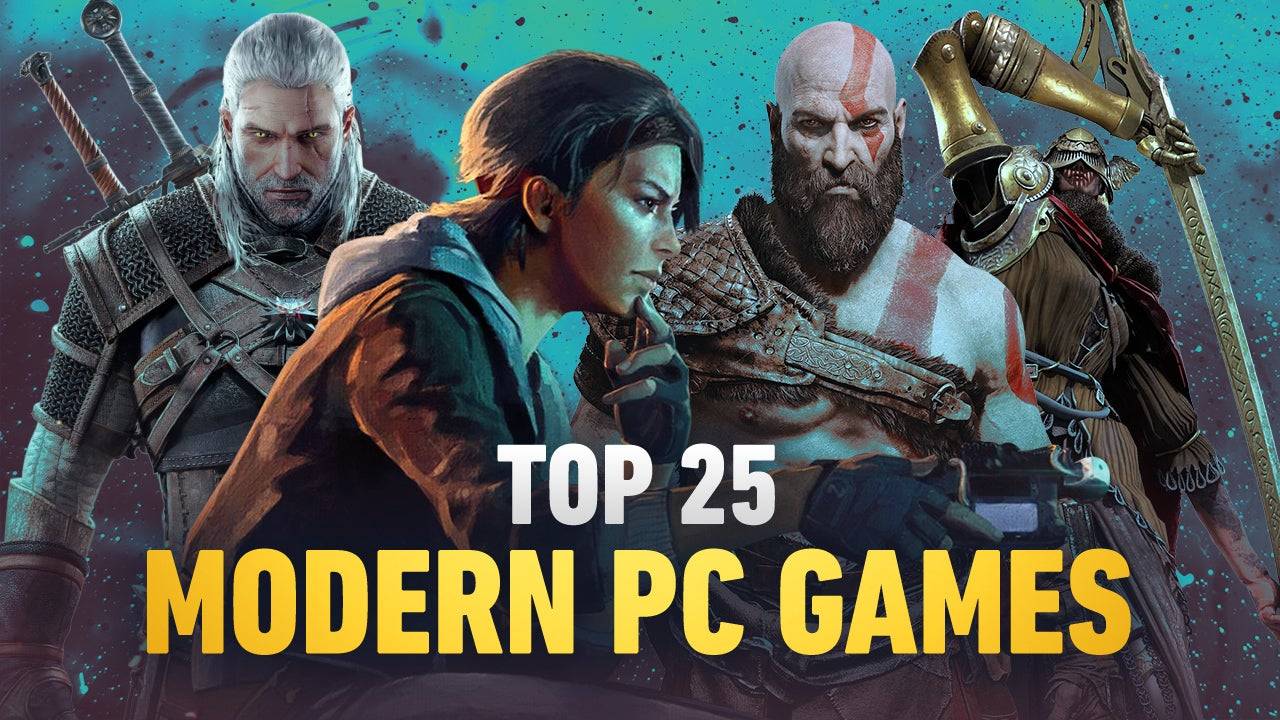Fortnite Chapter 6 Best PC Settings & How To Boost FPS
Fortnite's already frantic pace can become unbearable with poor framerates, rendering the game virtually unplayable. Fortunately, many performance issues are easily resolved by adjusting in-game settings. This guide outlines the optimal PC settings for a smoother, more enjoyable Fortnite experience.
Fortnite Best Display Settings
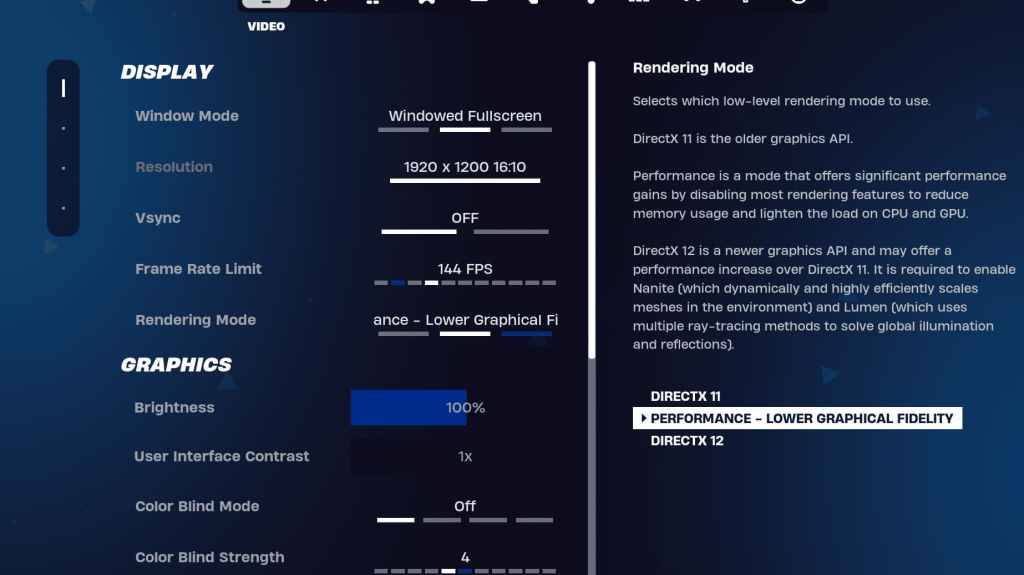
The Fortnite Video settings are divided into Display and Graphics subsections. Both significantly impact performance, necessitating careful adjustment. Here are the recommended Display settings:
| Setting | Recommended |
| Window Mode | Fullscreen (best performance); Windowed Fullscreen (for frequent tabbing) |
| Resolution | Native monitor resolution (e.g., 1920×1080); lower if using a low-end PC. |
| V-sync | Off (reduces input lag) |
| Framerate Limit | Monitor Refresh Rate (e.g., 144Hz, 240Hz) |
| Rendering Mode | Performance (maximizes FPS) |
Rendering Modes – Which To Choose?
Fortnite offers three rendering modes: Performance, DirectX 11, and DirectX 12. DirectX 11, the default, is older but stable and generally performs well. DirectX 12, while newer and potentially offering performance gains on modern systems with enhanced graphics options, may not always be the fastest. For optimal FPS and minimal input lag, Performance mode is the preferred choice among professional players. Visual fidelity will be lower, however.
Fortnite Best Graphics Settings
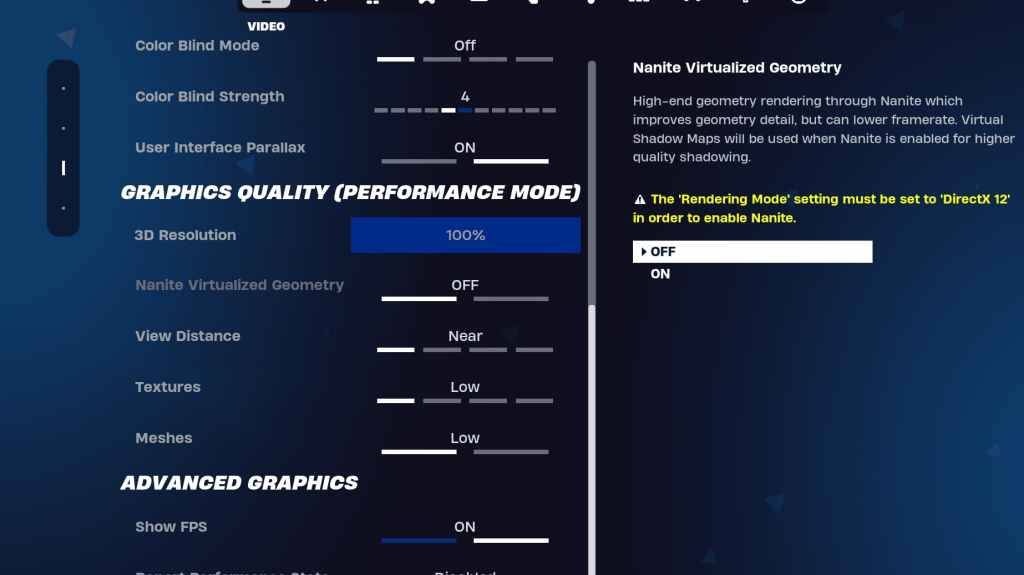
The Graphics settings offer the most significant impact on FPS. These settings control visual fidelity; optimizing them minimizes resource usage and maximizes frame rates. Here's the recommended configuration:
| **Setting** | **Recommended** |
| Quality Preset | Low |
| Anti-Aliasing and Super Resolution | Off |
| 3D Resolution | 100% (70-80% for low-end PCs) |
| Nanite Virtual Geometry (DX12 only) | Off |
| Shadows | Off |
| Global Illumination | Off |
| Reflections | Off |
| View Distance | Epic |
| Textures | Low |
| Effects | Low |
| Post Processing | Low |
| Hardware Ray Tracing | Off |
| Nvidia Low Latency Mode (Nvidia GPUs only) | On+Boost |
| Show FPS | On |
Fortnite Best Game Settings
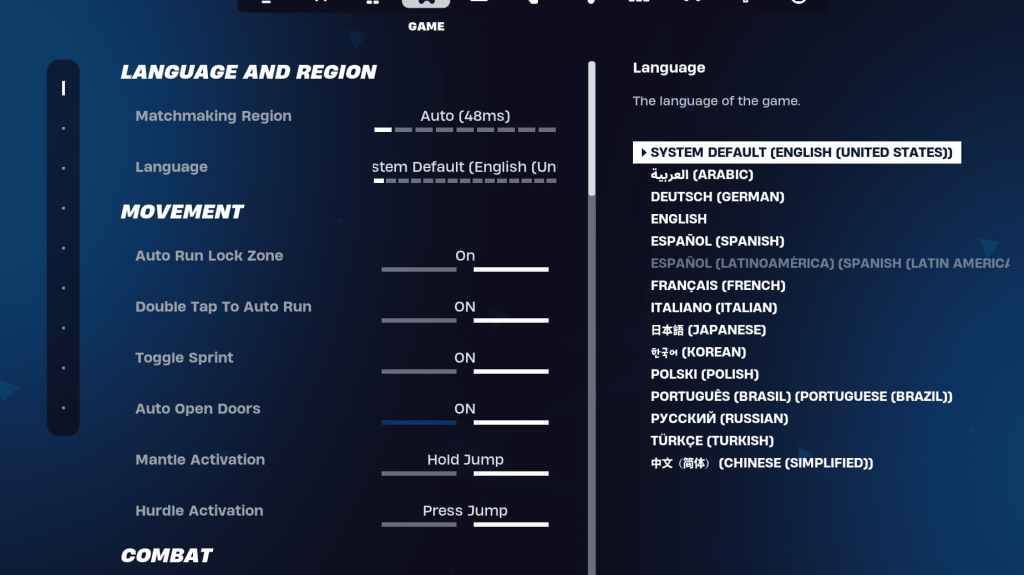
The Game settings don't directly affect FPS but are crucial for gameplay. They control aspects of editing, building, and movement. While many are personal preference, some are essential:
Movement
- Auto Open Doors: On
- Double Tap to Auto Run: On (controllers)
Combat
- Hold to Swap Pickup: On
- Toggle Targeting: Personal preference (Hold/Toggle to Scope)
- Auto Pickup Weapons: On
Building
- Reset Building Choice: Off
- Disable Pre-edit Option: Off
- Turbo Building: Off
- Auto-Confirm Edits: Personal preference
- Simple Edit: Personal preference
- Tap to Simple Edit: On (requires Simple Edit to be on)
Fortnite Best Audio Settings
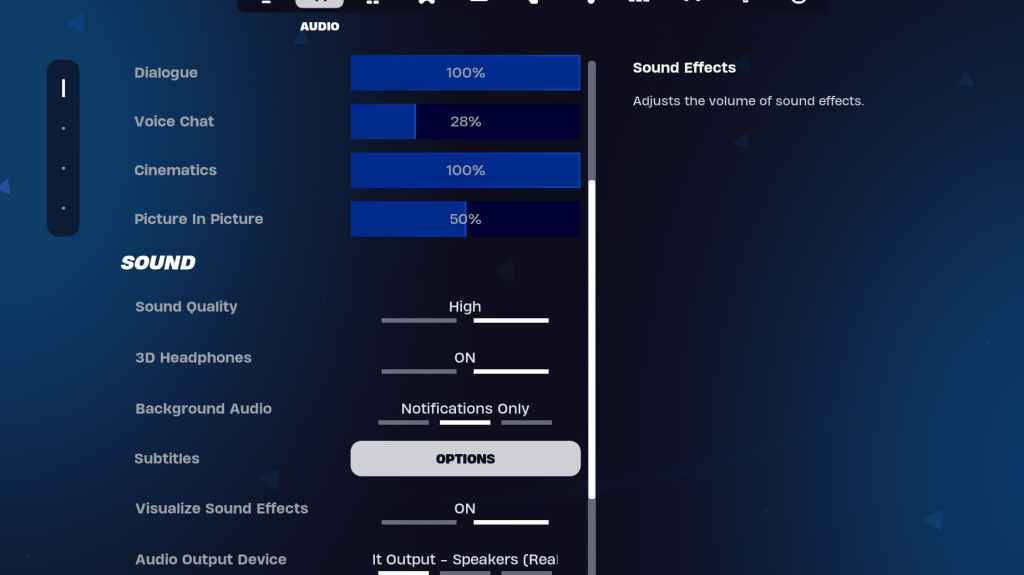
Clear audio is vital in Fortnite for detecting enemies. While the default audio settings are generally good, enabling 3D Headphones (for improved spatial audio, though results vary by headphones) and Visualize Sound Effects (for visual audio cues) is recommended.
Fortnite Best Keyboard and Mouse Settings
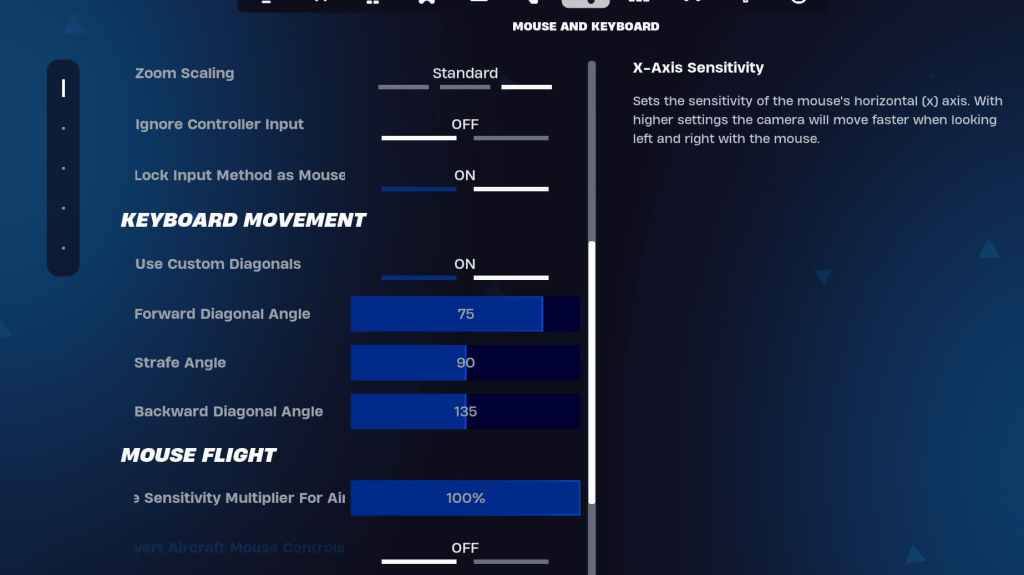
The Keyboard and Mouse settings allow customization of sensitivity and other crucial controls. The adjacent Keyboard Controls tab enables bind customization.
- X/Y Sensitivity: Personal preference
- Targeting Sensitivity: 45-60%
- Scope Sensitivity: 45-60%
- Building/Editing Sensitivity: Personal preference
- Use Custom Diagonals: On
- Forward Angle: 75-78
- Strafe Angle: 90
- Backward Angle: 135
Keybinds are largely personal preference; experiment to find what suits your playstyle best.
These settings provide a strong foundation for optimizing Fortnite performance. Remember to adjust settings based on your hardware and personal preferences. Fortnite is available on various platforms, including Meta Quest 2 and 3.









